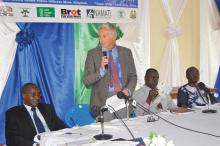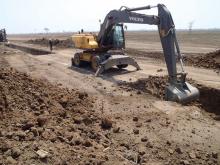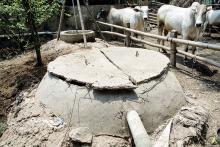Land Library
Welcome to the Land Portal Library. Explore our vast collection of open-access resources (over 74,000) including reports, journal articles, research papers, peer-reviewed publications, legal documents, videos and much more.
/ library resources
Showing items 1 through 9 of 30.Sierra Leone is one of the least developed countries in the world and is still recovering from a civil war that ended in 2002.
The buying up of farmland by international investors is viewed highly critically. However, sweeping judgements could be inappropriate, as our author demonstrates with survey results from Ethiopia and Uganda.
Last year Angola earned 48 billion US dollars from petroleum. Yet the country that was once Africa’s largest agricultural producer is reduced to importing food. Now the government and private investors want to develop the agricultural sector, in the hope that Angola could become a new Brazil.
The livelihoods of many rural dwellers are dependent on having secure and equitable access to land. Tenure security is also a prerequisite for sustainable land management. The massive interest of commercial investors has increased the pressure on land globally.
Logistics costs play a decisive role in food price development, especially when looking at local agricultural supply chains, e.g. for fruit and vegetables. The logistics cost burden on groceries varies greatly, depending on the prevalent supply chain setup.
Liberia’s government seeks to put greater emphasis on integrated cash/food crop systems with broad-based farmer participation. However, shortcomings in regulations on land transactions could threaten livelihoods in what is already a vulnerable country.
This case study draws on research that investigated the extensive informal land market in Maputo, Mozambique; specifically, how urban land is transacted and the mechanisms by which it is secured.
This case study draws on research that investigated the financial sustainability of cities in the Southern African region. The research was undertaken by the South African Cities Network (SACN).
Urban land markets have a profound effect on how well poor households are able to access the jobs, amenities and services offered in the city.







